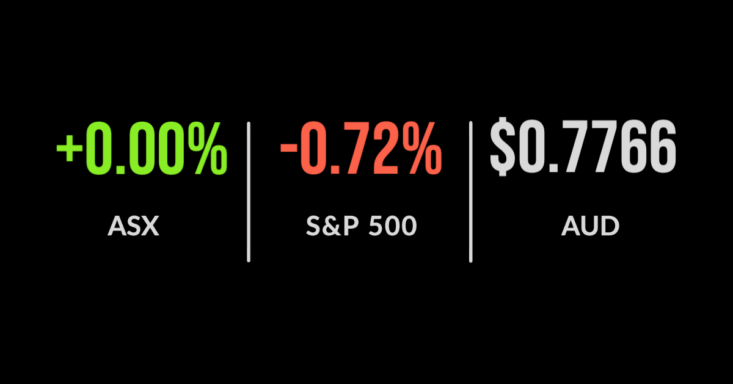A rare losing week for markets
A rare losing week for markets, Tyro (ASX:TYR) takes a hit, Afterpay (ASX:APT) overtakes Telstra (ASX:TLS)
The ASX200 (ASX:XJO) finished flat on Friday, sending the index to its first negative week in over a month, down 0.6%.
Afterpay Ltd (ASX:APT) was once again the standout, moving 10.0% higher and overtaking Telstra Corporation (ASX:TLS) as it moved to a market capitalisation of AUD$38 billion.
The company has been a key beneficiary of the low interest rates via both its access to the capital required to fund its buy now pay later transactions, but also in terms of its valuation.
Tyro Payments (ASX:TYR) which manages EFTPOS terminals around Australia was the subject of a short-seller attack, falling 11.8% before entering a trading halt.
Management has deemed the views of activist firm Viceroy Research ‘false assertions’, which suggest the group offered inferior, outdated technology.
Any doubt that interest rates were not having the desired effect on the economy will be quickly forgotten with new home loans increasing 5.6% in November to $24 billion, representing a 23.7% increase on the same time in 2019.
Banks are clearly not shying away from lending, which will support property markets in the short-term, at least until interest rates are forced higher.
Banking sector disappoints, US markets lower, Biden’s American Rescue Plan
US markets struggled on Friday, with the S&P500 falling 0.7% and the Nasdaq 0.9%, leaving both 1.5% lower for the week.
It was a trifecta of news, with incoming President Joe Biden announcing his ‘Rescue Plan’ for the American economy, flagging another US$1.9 trillion in spending.
The question now is whether this legislation can be passed in full, with markets shuddering at Biden’s comment regarding potential tax hikes.
Not unexpectedly, retail sales fell 0.7%, with expectations they would remain flat, with the political impasse and spiraling death rates clearly beginning to slow the economy.
Investment bank JP Morgan (NYSE:JPM) smashed expectations, reporting a 42% increase in profit for the quarter to US$12.1 billion on the back of a slight increase in revenue; shares fell 1.8%.
Wells Fargo (NYSE:WFC) fell 7.8% after management highlighted the impact low interest rates were having on their interest margin.
Profit was stronger than expected at US$2.99 billion, but an unexpected fall in revenue clearly shocked investors. Expect similar themes in the Australian market, with loan growth the only saviour.
Digital advertising in focus, energy sector on fire, Australia a global laggard
The major social media advertising firms, but particularly Google, Facebook (NASDAQ:FB), and Twitter (NASDAQ:TWTR) may have done themselves a disservice this week.
Already under pressure from both sides of politics due to their ‘filters’ on content, the decision, rightly or wrongly, to continue to block users has placed additional pressure on lawmakers to curb their control and ability to censor them.
The energy sector, specifically oil and gas, continued its stellar run, finishing 4.1% higher in Australia on the back of cooler weather in key Asian markets and much needed supply cuts from OPEC.
The oil price is nearing US$60 once again, which appears to be a false market, the most attractive plays in the sector remain those with a foot in both camps, being traditional and renewable energy sources.
Without joining the chorus against Afterpay (ASX:APT), its ascension to the 13th largest company on the ASX offers some insight into the issues facing our country.
After years of reliance on China, we have underinvested in technology and innovation, with a ‘lay buy’ business among our most innovative companies.
By comparison, our competitors in the US and China are creating leaders in areas ranging from robotics to artificial intelligence and even the creation of vaccines.










